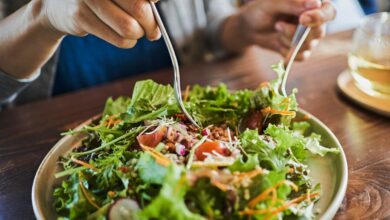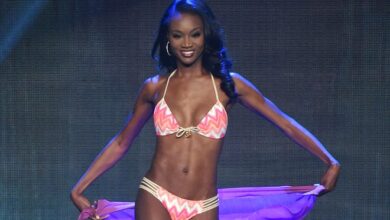How to Optimize Your Diet, Sleep, and Fitness, According to a Longevity Expert

Peter Attia had a problem. It was 2006. He’d recently graduated from Stanford’s medical school and was completing a prestigious surgical residency at Johns Hopkins, but instead of celebrating his success, he was tormented by frustrations.
The medical establishment, it seemed to him, was stubbornly resistant to change and innovation; doctors could easily diagnose the maladies that kill most of us — heart disease, cancer, Alzheimer’s, and type 2 diabetes — but they struggled to help their patients avoid those diagnoses in the first place. Peter believed there had to be another approach. He was convinced it was possible to practice a cutting-edge form of medicine that didn’t just manage diseases but tried to prevent them. So he embarked on a journey to figure out how to do it.
Now, nearly two decades later, he’s compiled everything he learned on that journey in a book, the #1 New York Times bestseller Outlive. It’s a comprehensive guide to exercise, nutrition, sleep, and mental health that’ll help you live better for longer. Attia joins The Next Big Idea podcast for a discussion so big, we made it two episodes.
Sign up for The Next Big Idea newsletter here.
Want to be able to lift a suitcase when you’re 100? You’d better start training now.
Rufus Griscom: You have this really counterintuitive framing around thinking about our health by working backwards, asking the question: In the last decade of your life, what do you want to be able to do? You call this the centenarian decathlon.
Dr. Peter Attia: I think a lot through this lens of what’s called the marginal decade, so one of the first questions I’ll ask a new patient is: What are your goals for the last decade of your life and what are your goals for the next 12 months? Almost without exception, nobody’s goals line up. Most people have far too lofty a set of goals in their marginal decade for what they’re doing today.
We actually have a list of 50 things, and we say to our patients, “Pick the 10 that are most important to you.” These are activities of daily living. Lots of people who ski want to be able to ski when they’re in the last decade of their life, and we’re not here to tell them that’s an unreasonable goal. We’re simply here to tell them what is the physiologic requirement to be able to do that. So we know how much strength declines by decade. We know how much power declines by decade. We know how much VO2 max declines by decade. So we say, “Well, these are the physiological requirements for where you want to be at 90 based on how they’re declining. This is where you need to be today. Where are you? Oh, you’re here. So you’re higher than where you need to be at 90, but you’re not nearly high enough.”
Why exercise is the most important factor in improving your healthspan.
Rufus: If you had to force rank diet, sleep, and exercise, what do you think are the ones that are most effective in improving the healthspan of most people listening? How would you rank those three?
Peter: It’s no question that exercise is number one. There should be no debate. As a general rule, I would go exercise, nutrition, sleep—but the gap between exercise and the other two is a chasm.
So the easiest way to imagine this is to ask the question: What are the gradations of improvement or harm that come in the extreme states of each? Let’s start with nutrition. What is nutrition all about? Nutrition is all about metabolic health. So what is the most extreme state of poor nutrition? It’s type 2 diabetes and obesity. How much of a risk does that bring to an individual? If you look at the Cox proportional hazards, which are the statistical tools that we use to generate what are called hazard ratios, it’s clear that the risk of type 2 diabetes is significant. If you talk about all-cause mortality, it’s about 30 to 50 percent more, and if you talk about disease-specific mortality, it can be 50 to 100 percent more.
“As a general rule, I would go exercise, nutrition, sleep—but the gap between exercise and the other two is a chasm.”
When you look at sleep deprivation or disrupted sleep, it has smaller hazard ratios than that. Short sleep is going to come with a 20 to 30 percent increase in all-cause mortality.
But now let’s look at exercise. In exercise, we have three really good metrics that integrate the work that is done, and those are VO2 max, muscle mass, and strength. If you have a very high VO2 max versus a very low VO2 max— So let’s just say if you compare people in the bottom 25 percent for their age and sex to the top 2.5 percent, the difference is 5x, which is a 400 percent difference in all-cause mortality.
Rufus: Astonishing.
Peter: The same is true for muscle mass. So what would I take away from that? If your VO2 max, muscle mass, and strength are in the top 10 percent for your age and sex, you’re bulletproof. Your nutrition doesn’t really matter that much. Now, again, there’s a caveat here, because you wouldn’t be able to get into that shape without reasonable nutrition and sleep to support it. There is an absolute cross pollination of these things. But exercise is the most important tool that we have.
How much exercise should you be doing?
Rufus: What do we need to do to get these extraordinary benefits? What amount of exercise do you recommend for your typical individual in a given week?
Peter: I usually start with the question: How much time are you willing to give to this process? Take whatever that number is and divide it in half. Half of that is going to be strength and stability; half of that is going to be cardio. The strength and stability should be divided such that about 80 percent of it is strength and 20 percent is stability. The cardio should be divided such that about 80 percent of it is Zone 2 (i.e., exercise performed at 70 to 80 percent of your maximum heart rate) and 20 percent of it is VO2 max specific training. That, in a nutshell, is the simplest formula for how to divide your time in exercise.
The best diet advice is the simplest.
Rufus: You say, Peter, that you hate being asked at dinner parties about diet. Why is that?
Peter: I just hate the topic. I hate everything about it. People come up to me and ask me things at parties, and there’s just genuine confusion, and I can understand that, but what I think I rail against is the religious zeal with which people try to tell you that their diet is the one true diet. The evidence is just overwhelming that that is not the case. Nutrition matters in terms of energy balance, nutrition matters as far as micronutrients, nutrition matters as far as anabolic building blocks (i.e., nutrition matters in terms of avoidance of disease-causing agents).
Rufus: So the basic principles of nutrition that are non-controversial are avoid drinking sugar water, processed foods are generally a bad idea. Would you agree with that?
“We can’t paint by numbers when it comes to nutrition.”
Peter: I don’t want to be too much of a stickler, but even the term processed food is a bit complicated, because processing food is what allows us to live in the way that we live. It would be very difficult for us to live if we could only subsist on completely unprocessed food. It’s true that if you’re eating something processed, the probability that it’s bad is probably higher than the probability that it’s good, but there are some processed things that I eat that I think are really healthy, so you have to sort of look at everything in a case by case way.
If we’re looking for broad contours, it’s all the common sense things. It’s shopping on the outside of the grocery store, not the inside. It’s always doing the grandma test: Did my grandma eat this? If not, I probably shouldn’t be eating this. But again, that’s not a universal truth, right? Your grandma couldn’t have had a whey protein shake, but there’s really high-quality whey protein out there that is a great way to get additional protein if you can’t get it through all of your meals. So that’s a long-winded way of saying we can’t paint by numbers when it comes to nutrition.
How to take a nuanced approach to drinking.
Rufus: We had a guy named Edward Slingerland on the show who wrote a wonderful book called Drunk about the co-evolution of humans and alcohol. And he cited a number of studies showing very definitively something that most people wouldn’t be surprised by. Take a random sampling of people. Some think they’re drinking alcohol, but they’re not. Some think they’re not drinking alcohol, but they are. Those who have consumed alcohol, whether they realize it or not, will make more eye contact, laugh more, be more trusting. So I think it is effective in helping humans connect, and we know that’s good for health. What do you think?
Peter: I would be hard pressed to disagree with anything that you’ve said. It comes back down to this discussion of nuance. At least in the case of red wine, there are probably some phytochemical benefits as well—there’s probably some antioxidant properties of red wine that, from a nutrient standpoint, are beneficial. And everything you’ve said about the pro-social side of it, for many people, is true, but of course, for some people that’s not true. Let’s not forget that there are many people for whom alcohol is a bad thing. I don’t want to lose sight of that.
What’s unambiguous is that ethanol is a toxin, a carcinogen, and a harmful molecule. I want to make sure everybody understands that. There’s nothing about ethanol that is, at any dose, beneficial.
That said, you can be mindful about how you use this thing to your advantage and shield yourself from some of the harm of it. If I have two glasses of wine at 6 p.m. and go to bed at 10 p.m., I sleep pretty well. If I have two glasses of wine at 9 p.m. and go to bed at 11 p.m., I sleep really poorly. So, to me, that’s what I would call the nuanced approach.
Rufus: This is expert, middle-aged partying. Start early.
The steps to take for a good night’s sleep.
Rufus: The dividends of a good night’s sleep are profound. It affects mood, cognitive function, glucose removal, memory formation, libido…
Peter: It’s really wonderful. But you have to get to this point where you’re saying, “This is so important that I’m willing to do it, which means I’m willing to make eight hours of my day for this thing.” That’s about what it takes to get seven-and-a-half hours of sleep. You’ve got to say to yourself: “I’m going to be consistent about when I go to bed and when I wake up, including weekends. The room is going to be dark. It’s gonna be cold. And I’m not going to have electronics in the room.” You’ve got to get your phone out of the bedroom. And you have got to set the mood for sleep by not doing stimulating things beforehand—and the most notable of these, for virtually every human being, is email and social media.
Edited and condensed for clarity.
You May Also Like:
To enjoy ad-free episodes of the Next Big Idea podcast, download the Next Big Idea App today:


